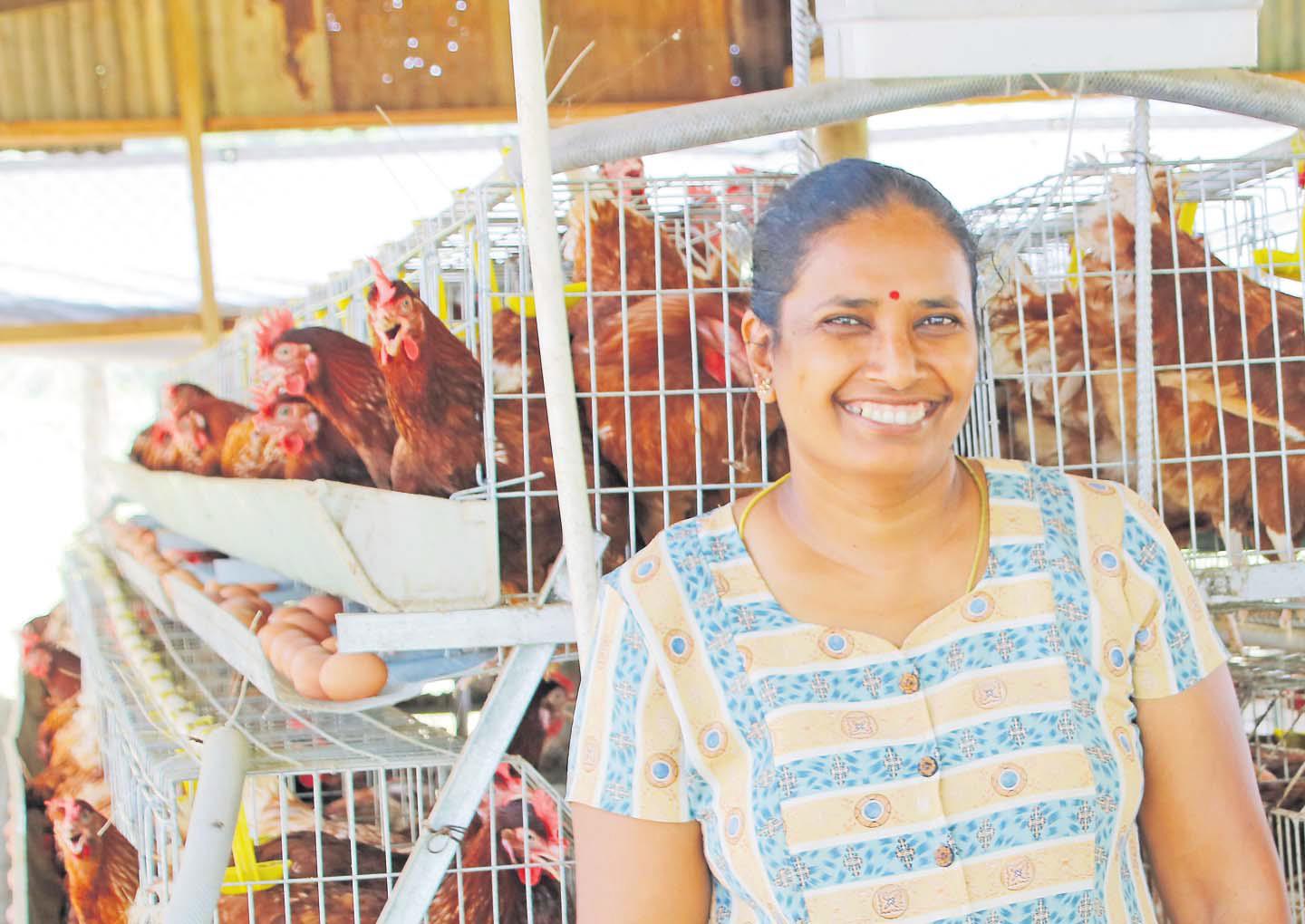“I started blank. I had no idea on how to do business, or banking or track expenses. But I have always raised chickens in our back yard and so it made sense to do this as a business.”
Award-winning Gopal’s Poultry Farm in Coqeloa, Labasa, stands out as a progress story, owning its success to the business owner Meena Gounden’s efforts in being innovative and using her financial literacy skills to survive through the COVID-19 pandemic crisis by staying open for business.
“I am now thinking about improving my business resilience by planning on how to recover from the crisis by adapting to the ‘new normal’,” said Ms Gounden.
Ms Gounden’s business turns nine this year, having started with no knowledge of doing business, managing money or even managing risks.
Over the years, she established a market for herself and competed against large poultry businesses.
She started with 150 layer birds.
Today, she has more than 2000 birds housed in two sheds.
Her business started with a grant assistance through the Northern Development Program and financing from the Fiji Development Bank (FDB) in 2011.
“Because I have seen tough times, I was already in the habit of planning, budgeting, tracking my income and expenses to avoid risky situations. My financial literacy training also included skills on marketing which has been helpful during this pandemic crisis,” said Ms Gounden.
“Before COVID-19, I would sell eggs in the market and would successfully sell all the trays before day-end. But business is no longer normal,” she said.
Ms Gounden said her business got affected when her competitor dropped the price of eggs because of the pandemic measures put in place. As a result, on some days, her income was slashed to half.
“I had to reduce my price as well, but I am a small business and I sell only fresh eggs. So I am affected more than the bigger competitors who have storage facilities,” she explained.
“With that change, I had to find other ways of staying open for business.
“Now with less sales at the market, I deliver eggs to families and friends in the town areas, make trips to neighbouring villages, and sell on the roadsides when necessary.
“As long as my customers get fresh eggs.
“One of the ways I have changed my method of doing business is that now I deliver as less as only two trays – whereas previously I would only make deliveries when there would be sale for at least five or more trays,” she explained.
She said tough times during the initial days of starting up the business prepared her well for identifying risks and finding solutions for it.
“I have struggled previously so I knew that I needed to find other means of generating income when COVID-19 hit and be able to pay for my workers somehow,” she said.
Apart from selling eggs, Gopal’s Poultry Farm also sells vegetables and manure.
“I did not want to lay off my workers, as these women have families to support as well. So we decided we would all work hard and ensure we have enough sales to pay their wages,” explained Ms Gounden.
She said her reduced income had affected her monthly instalment schedule for the payment of chicken feed from her supplier.
“I used my entire surplus to pay my loan in advance so now I am planning on how I will pay for the feeds if the sales continue to be low like this,” she said.
“But I am hopeful for customers to read this article and come forth to help me with my sales. They can call me on 8625363,” she said.
FDB acting chief executive officer Saiyad Hussain said financial literacy played a role in preparing business owners to face challenges and plan for their sustainability.
“Financial education improves businesses’ ability to identity risks and their related mitigation,” Mr Hussain said.
“Meena is able to keep Gopal’s Poultry Farm open for business because she is equipped with knowledge on managing the health of the birds, their environment, lighting, food and water supply as well as financial management skills in order to better plan and manage the expansion of her business,” he said.
“The financial literacy training that Meena attended helped her with ideas on how to manage during the crisis,” he said.
In 2015, Ms Gounden was awarded the best microfinance entrepreneur at the National Microfinance Awards organised by the National Financial Inclusion Taskforce.
She was recognised for her outstanding progress as a microbusiness.
Three years later, as the business grew to a small and medium enterprise (SME), she was awarded
the FDB’s 2018 national SME of the year award and the best risk managed SME award.
In 2019, she installed a piping system conducive to maintaining health and preventing disease for her birds.
Unlike others, the farm’s piping system has no stopper and therefore allows free fl ow of clean water from the water tanks so that the chickens are not subject to drinking stagnant water.
Ms Gounden’s entrepreneurship is an exemplary journey with its potential to contribute positively to the economy by alleviating poverty, creating employment and empowering youths and women.
You can contact Meena for your orders on 8625363.




